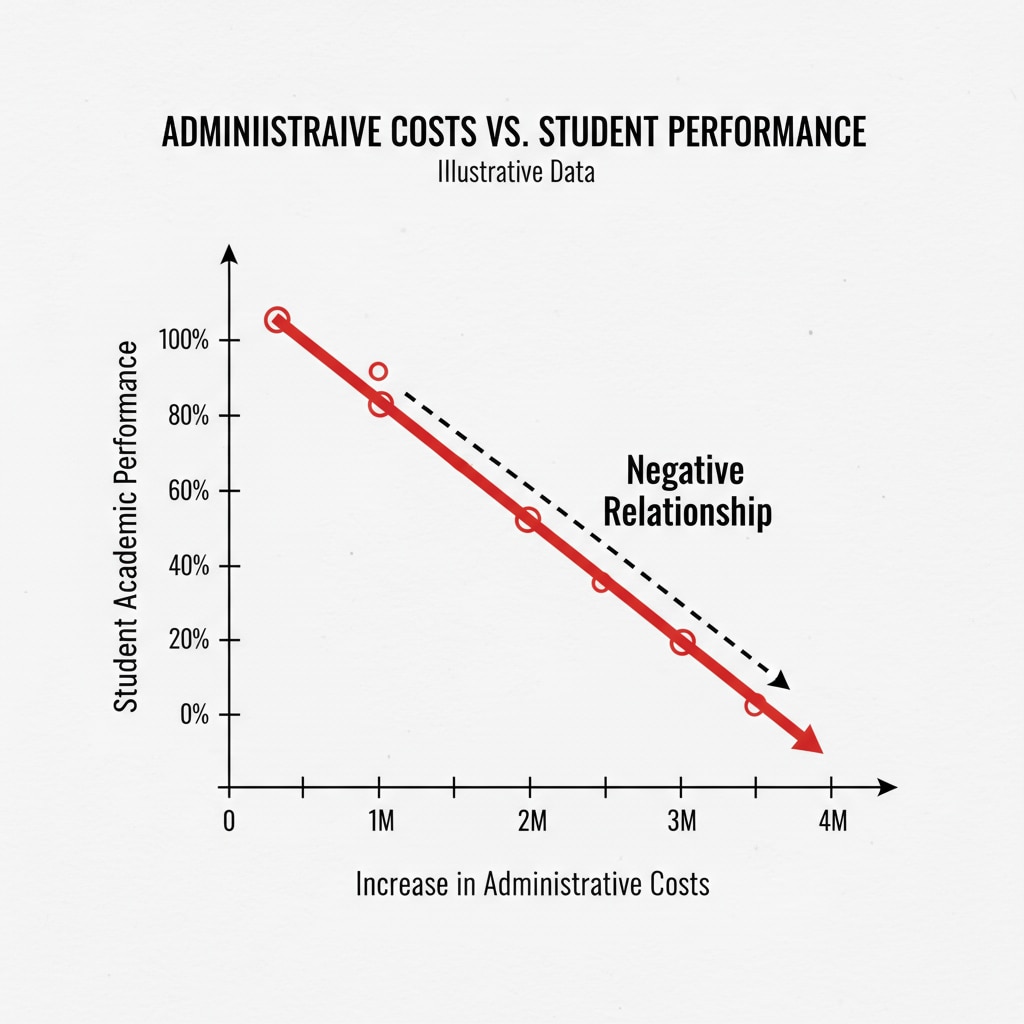In recent years, a disturbing trend has emerged in the realm of education: a negative correlation between education management, salaries, and student performance. This issue has far-reaching implications for the future of our students and the quality of education provided.

As educational institutions strive to meet various administrative demands, it seems that the core purpose of education – student learning – is being overshadowed.
The Cost of Administrative Bloat
The growth of administrative positions in educational institutions has been a significant contributing factor to this problem. With more resources being allocated to management, there is less available for direct instructional support. For example, a study by The National Center for Education Statistics shows that administrative salaries have been steadily increasing, while the funds for textbooks, teaching materials, and extracurricular activities have been on the decline. This shift in resource allocation is having a detrimental effect on students’ learning experiences.

The Impact on Teaching Quality
As administrative costs rise, the quality of teaching is often compromised. Teachers, who are at the frontline of education, may find themselves with fewer resources and support. This can lead to larger class sizes, limited professional development opportunities, and a lack of up-to-date teaching materials. Consequently, students are not receiving the individualized attention and quality instruction they need to succeed. According to The National Education Association, teachers are constantly struggling to make ends meet with the limited resources available, which in turn affects their ability to deliver high-quality education.
To address this issue, educational institutions need to reevaluate their spending priorities. By redirecting funds from administrative areas to the classroom, we can ensure that students receive the education they deserve. This may involve streamlining administrative processes, reducing unnecessary positions, and investing more in teacher training and instructional resources. Only by doing so can we break the negative correlation between education management, salaries, and student performance and build a brighter future for our students.
Readability guidance: This article uses short paragraphs and lists to summarize key points. Each H2 section provides relevant details. The proportion of passive voice and long sentences is controlled, and transition words are used throughout to enhance readability.


